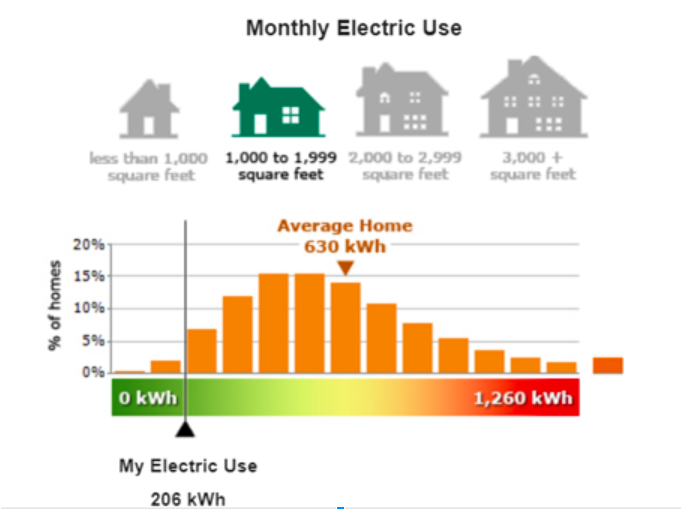
“Do as I say, not as I do?”
I remember my mom asking me that when I was a kid, chastising me for the gap between my own actions and the actions I expected from others. Growing up deep in the Midwest, I learned early that I ought not criticize others unless I was without fault myself.
“Be the change you want to see in the world.”
Gandhi’s words are perhaps a more positive spin on all of this—that we ought to exemplify the practices we seek to spread.
Definitely my mom had a point. In Influence: The Psychology of Persuasion Robert Cialdini, Ph.D, writes that researchers have long recognized that humans value consistency and that we’ll go to considerable effort to demonstrate our consistency. So if I’m someone who advocates for actions that mitigate climate change, surely my own life reflects those values. If I help others reduce their energy consumption, then surely I’ve reduced my own consumption.
Surely.
Comparing Energy Savings
Mostly I walk the talk. Our house uses about 1/3 the energy of a typical home in our community and we have a solar system that actually produces enough to power the house and our electric car. Even with a green car, I make an effort to limit my driving and I’ve organized carpools in a myriad of settings. Also, I eat far less meat than most Americans.

Still, I have friends and colleagues who go much further. Like anyone who has spent decades working on energy efficiency issues, I know plenty of true believers. I’ve had colleagues who biked to work year round, despite the snow and cold here in Wisconsin. A friend of mine takes just one airplane flight each year, opting for trains or not going on other trips that require air travel. And I know a number of people who live off the grid—in homes powered by solar and wind, leveraging a set of batteries in the basement.
When asked about my practices I tend to tell people that I’m on the same journey they are—trying to reduce my impacts, making increasingly sustainable choices, but struggling with some things, as we all do.
Lead by Example
In Don’t Even Think About It: Why Our Brains Are Wired to Ignore Climate Change, George Marshall makes an important point, noting that we are all part of the climate problem, even us advocates. We need to find ways to forgive ourselves for the emissions we create even as we try harder to mitigate our own impacts.
At the same time, of course, we should be the change we want to see in the world. Otherwise the gap between our actions and our exhortations can become the story, distracting from the actual sustainability message. (The various discussions, for example, about Al Gore’s personal airplane, aren’t helping us achieve the emission reductions we need.)
I prefer transparency. In my view, people have every right to ask me about my carbon footprint; these folks are simply verifying that my own house is in order before I offer any advice to them. So I share the data and acknowledge my own shortcomings, reinforcing that we all can do better.
More, I encourage other sustainability leaders to do the same—be transparent about your own efforts to reduce your environmental impact. And if your data isn’t exemplary—if your household energy usage exceeds the neighbors, if your emissions from travel are double the average—well, do something to mitigate those impacts! In the same way you want to see others take action, set an example with your own life. Be the change. Yes, it might be hard but that’s the point, isn’t it?
We’re finally in a moment where there’s a lot of common talk around sustainability. A recent study said 70% of Americans responded favorably to the term sustainability. So we’ve got the talk. Now we need to walk the walk.
Comments are closed.




